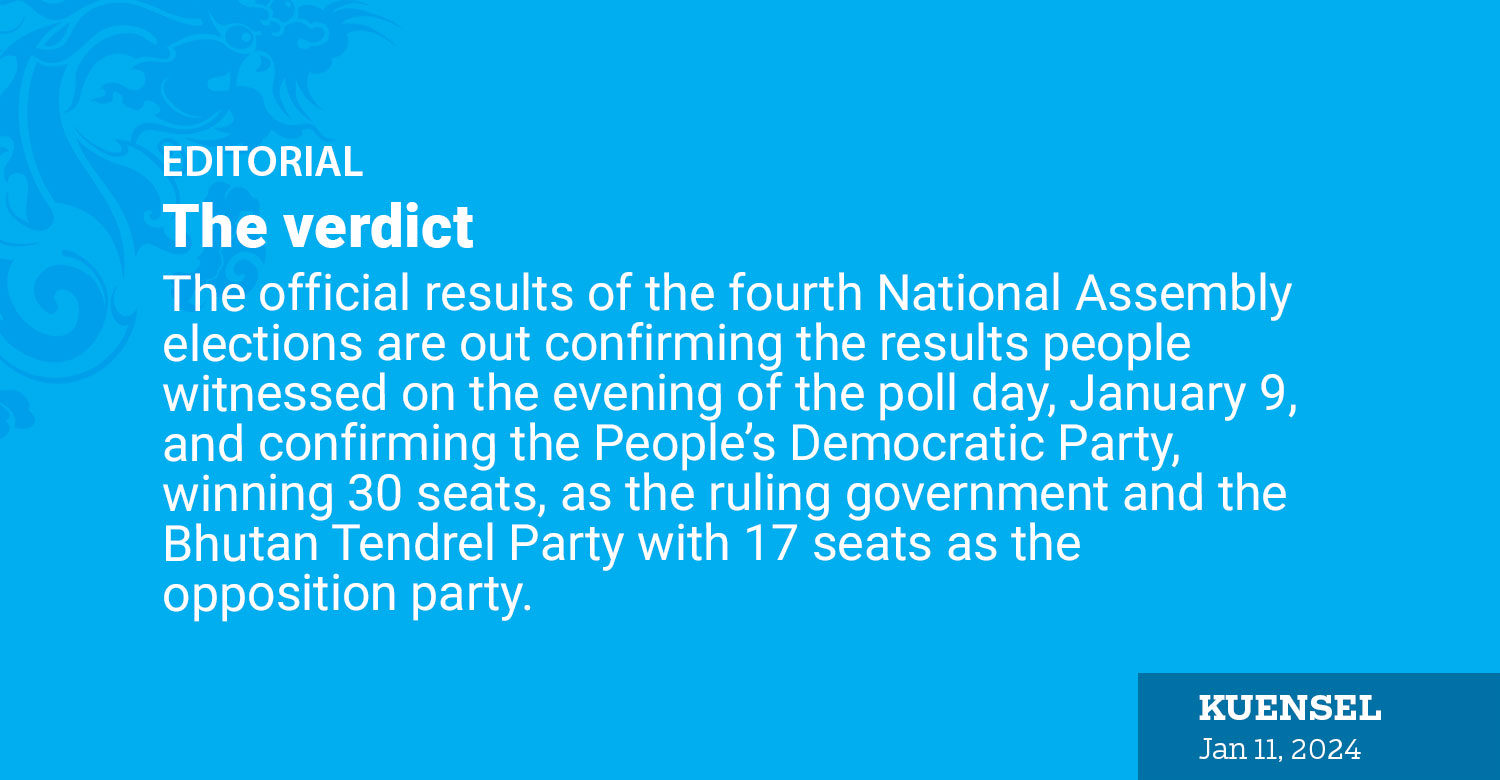The official results of the fourth National Assembly elections are out confirming the results people witnessed on the evening of the poll day, January 9, and confirming the People’s Democratic Party, winning 30 seats, as the ruling government and the Bhutan Tendrel Party with 17 seats as the opposition party.
Conducted in a fair and free manner, the people of Bhutan have given the mandate of governance to the PDP. Despite the initial concerns, stemming from the primary round results, predicting a potential sweeping victory of 38 or more constituencies for the PDP in the general round. The voters, 65.74 percent of the total eligible voters, chose PDP without giving them an absolute majority.
Details of the voting pattern and the seats won made many feel that the 2024 Assembly elections were delineated along regional lines. While the PDP may not have secured more than one constituency in the east, such an interpretation is erroneous. For instance, in Pemagatshel, nearly 6,000 people voted for PDP in the three constituencies underscoring the party’s support in the east. In Haa, from where the PDP president hails, nearly 1,500 voters voted for BTP candidates in the two constituencies even if the president won by a landslide majority.
The visually represented electoral map, crafted by media houses for clarity, might have made people believe that people voted on regional affiliations. This is not true. For every five supporters of the winning party, there is one for the one who came second. That is the beauty of democracy. Not all should or will vote for one party. Voting is a right and left on their choices, our voters know how to vote.
What we should appreciate is the huge turnout and the conduct of the elections. More than that we should uphold the dignity of those who lost the elections. Unlike in the region where election results are challenged including resorting to violence, the message from both PDP and BTP candidates who lost is of burying the difference and working together to fulfil the vision of the King and the country.
Some are calling openly to forgive or forget the rift or differences created while campaigning. For a democracy to thrive, we need to respect the choice of the people, irrespective of party affiliations or individual candidates’ success or failure.
Many believe that PDP resonated with the electorate by prioritising economic revival as its central campaign theme. The economy is not in the best shape after the Covid-19 disruptions. The private sector rallied behind PDP because, in the party, they saw hope and opportunities. The pledges, even if some involve undoing the reforms initiated in the last five years, resonated with voters. They gave the mandate to the PDP.
The real work for the PDP government commences in eight days, as they prepare to mount the saddle and embark on the journey for the next mile. Expectations run high that the party, led by its leader, will deliver on the promises made during the campaign.


